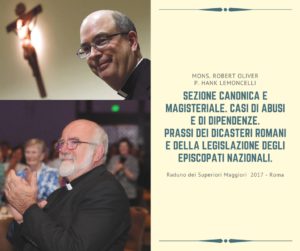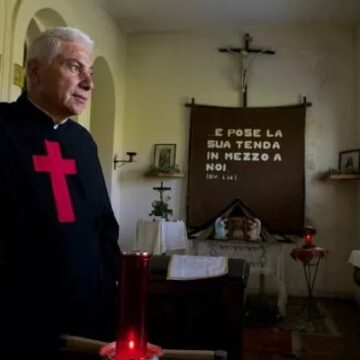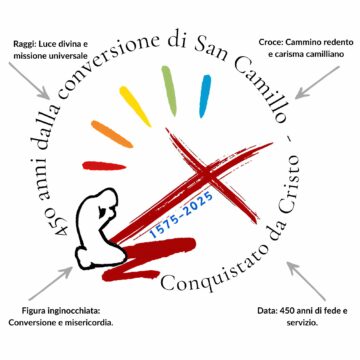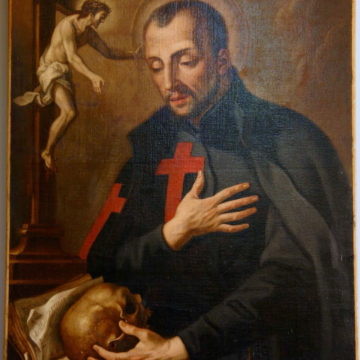 After the prayers and the celebration of the Eucharist on early Sunday morning, Msgr. Robert Oliver – the Secretary of the Pontifical Commission for the Protection of Minors – and Fr. Hank Lemoncelli OMI – an Official of the Congregation for Institutes of Consecrated Life and Societies of Apostolic Life (the Congregation for Religious, the Vatican) – led us into the ‘thorny and painful’ subject of the first part of the third day of our meeting: the defence and the protection of minors and vulnerable people against sexual abuse. They concentrated on the practice of the Roman dicasteries and the legislation of national episcopates in relation to this subject which is of impelling contemporary relevance – at all latitudes and in different cultural contexts – in today’s ecclesial and social setting.
After the prayers and the celebration of the Eucharist on early Sunday morning, Msgr. Robert Oliver – the Secretary of the Pontifical Commission for the Protection of Minors – and Fr. Hank Lemoncelli OMI – an Official of the Congregation for Institutes of Consecrated Life and Societies of Apostolic Life (the Congregation for Religious, the Vatican) – led us into the ‘thorny and painful’ subject of the first part of the third day of our meeting: the defence and the protection of minors and vulnerable people against sexual abuse. They concentrated on the practice of the Roman dicasteries and the legislation of national episcopates in relation to this subject which is of impelling contemporary relevance – at all latitudes and in different cultural contexts – in today’s ecclesial and social setting.
The aim is to continue to sensitise us and to make us grow in information and formation in order to have an increasingly better knowledge of the gradualness of the processes involved and to organise in a more effective way the steps that have to be taken. This is a matter of continuing to grow in listening to religious and to victims of abuse, with a vigilant discernment of the behaviour of individual religious in the carrying out of our ministry; with accompanying; with suitable contents for the pathways of formation of the religious themselves; and with a retraining of religious who are accused but who then, in the light of the facts, turn out to have been extraneous to the events.
‘It is important to establish the truth of what happened in the past, to take whatever steps are necessary to prevent it from occurring again, to ensure that the principles of justice are fully respected, to accompany and support the victims as an absolute priority of the Church herself and our pastoral activity’ (Pope Benedict XI to the Bishops of Ireland).
‘We do not want to take one step backwards in addressing this problem and the sanctions that must be imposed. On the contrary, I believe that we must be very firm’ (Pope Francis).
The ultimate goal of this policy at the level of information and formation is to draw up guidelines for the Order and for individual religious Provinces that can guide us correctly in these emergencies: helping victims, educating everyone in the protection of minors, training future priests and religious, supporting all religious (including those who are accused), managing the canonical processes and cooperating with the civil authorities.
In the afternoon, the member of the General Consulta responsible for ministry, Fr. Aris Miranda, took up certain priorities of the Camillian project for a creative and faithful life in connection with the decisions approved by the recent (2017) Chapters of the Provinces, Vice-Provinces and Delegations.
The analysis focused on the various geographical areas of the Camillian world – Asia, Europe, South America and Africa – and the various fields of formation, economics and ministry.
Various challenges and opportunities have emerged. At the level of formation, there is the challenge of the perseverance of religious. On the other hand, we are witnessing the phenomenon of the advance of vocations in some non-Christian countries (Indonesia, Vietnam). At the level of ministry, one observes that in many countries very rigorous laws of the state at the level of professional requirements make our Camillian presence in hospitals or other health-care institutions inadequate. At an economic level, we are still witnessing the economic dependence of various Delegations on the ‘mother’ Provinces. Other challenges arise with the secularisation of society, which makes religion and spiritual experiences of little value, especially for young people.
Emphasis was placed on the need to improve cooperation at the level of formation – through inter-Provincial entities – between Camillian institutions that are similar in terms of language and culture. To this end, it would be useful to invest resources in ‘internationalising’ our Order, creating new synergies between Provinces, implementing the study of languages, and accompanying and organising the flow of religious from a Provincial context to support other Camillian religious contexts. As regards the Camillianum, here too there should be a pathway of greater synergy with the various ‘outlying’ centres for formation of the Order. This would be an opportunity for an exchange of knowledge, projects, students and lecturers.
Requests were made for the formulation of guidelines that could accompany and organise a new style of cooperation between Provinces within the Order. For some of these, above all in Europe (France, England/Ireland), we have before us a pathway of reorganisation/amalgamation/alliance with other Provinces of the Order (Burkina Faso and India, respectively). This process, in concrete terms, needs time and above all it should be done starting with a growth in the mutual esteem of religious so as to overcome diffidence and prejudice and then go forward with the practical process of union.










